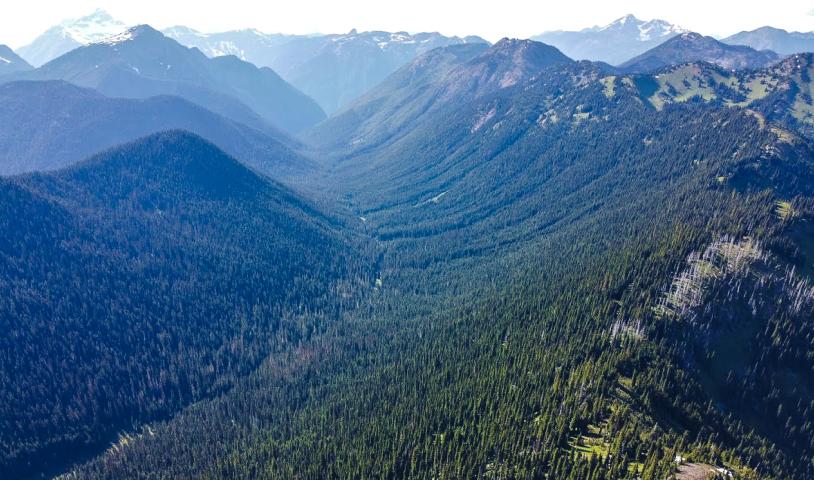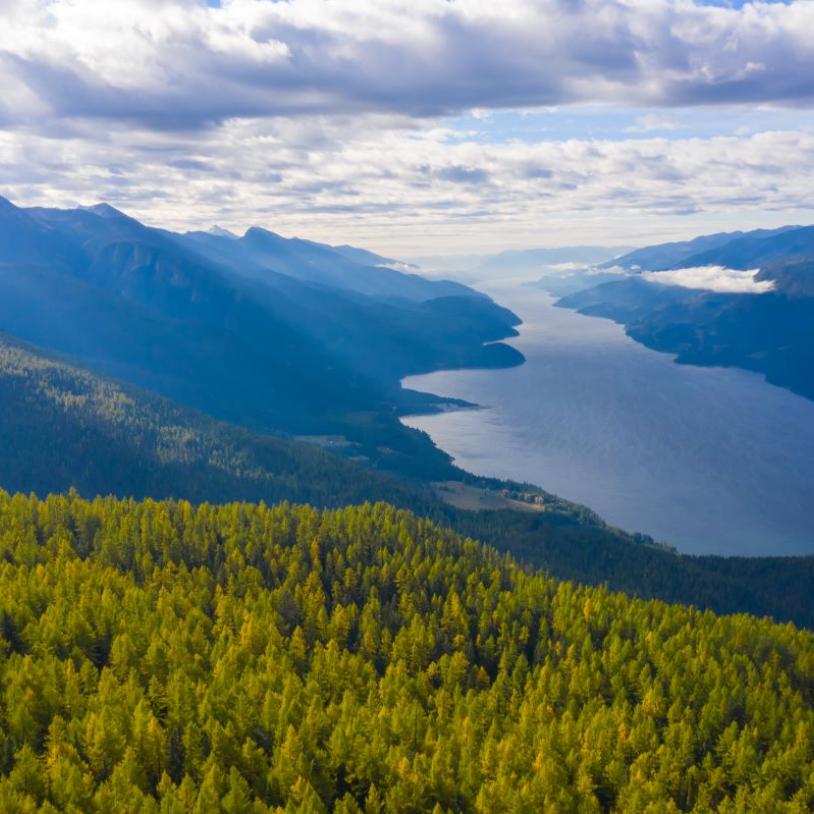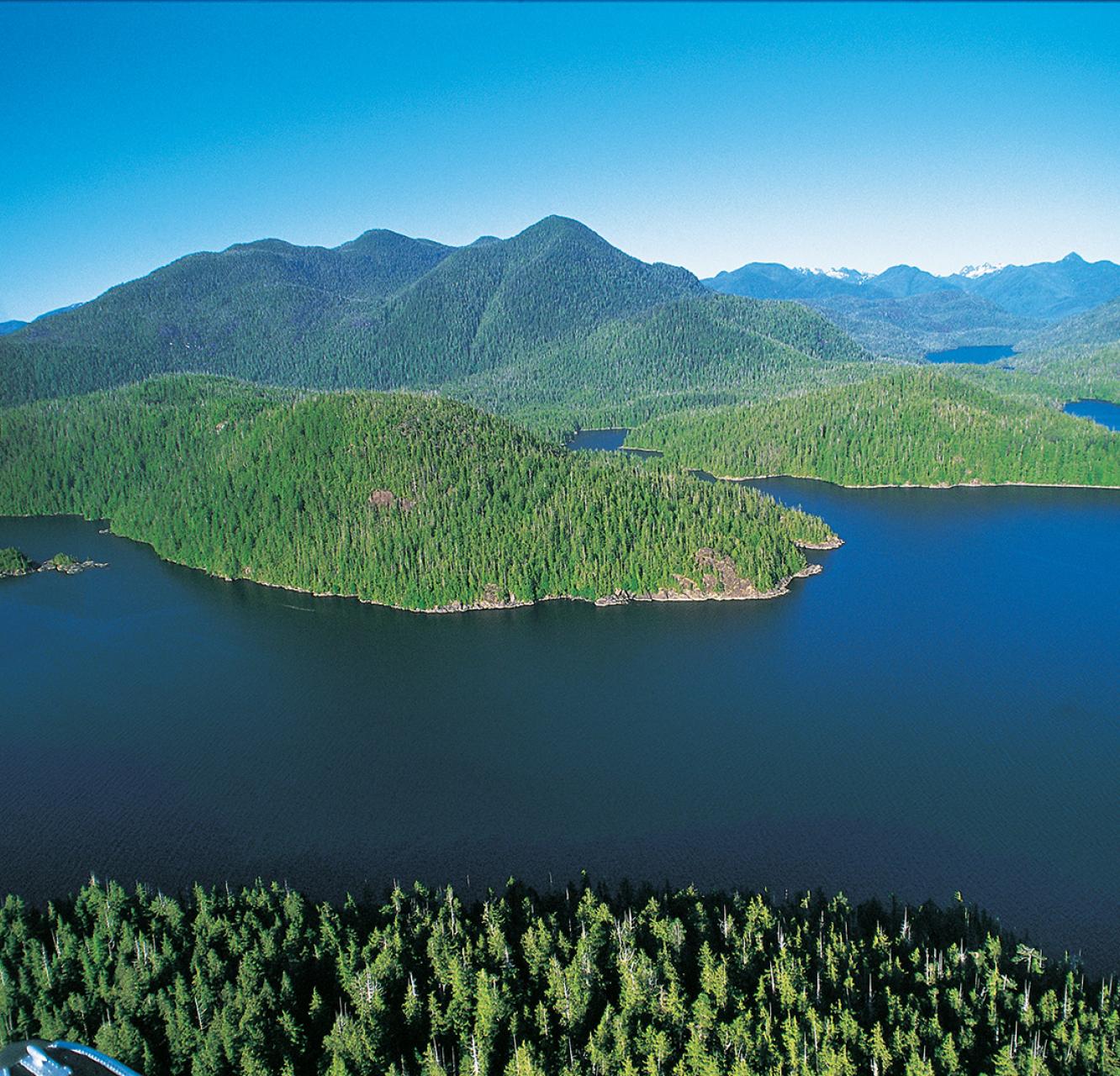B.C. stakeholders add to growing opposition to Imperial Metals’ mining permit near Manning and Skagit provincial parks
Thursday, July 29, 2021
B.C. businesses and conservation and recreation organizations join international coalition of 280 opponents to proposed mining in Skagit Headwaters
VANCOUVER / UNCEDED xʷməθkʷəy̓əm, Sḵwx̱wú7mesh AND səlilwətaɬ TERRITORIES — Today, 39 British Columbia organizations and local businesses sent a letter to the British Columbia Ministry of Mines as the latest evidence of opposition to Imperial Metals’ proposed mining permit near Manning and Skagit provincial parks in the Skagit Headwaters. The letter calls on the British Columbia government to deny the proposed permit that could affect conservation, recreation, and ecological values in the province.
"After almost a century of blasting, drilling and tunnelling to find a workable mine with no luck whatsoever, it's time for British Columbia to extinguish Imperial Metals' mineral tenure in the Skagit Headwaters Donut Hole and then, with First Nations, protect the place,” said Joe Foy, Protected Areas Campaigner, Wilderness Committee. “B.C. must also enforce an Imperial Metals cleanup of the site, which is strewn with industrial garbage, waste rock and mine drainage left behind by years of fruitless exploration. Imperial Metals needs to step up and clean up then drop their claims in the area so the Skagit Headwaters can finally get the protection it needs and deserves."
The Skagit headwaters of British Columbia are made up of lush forests and clean clear water, which support an impressive diversity of fish and wildlife, including an important run of chinook salmon. The Skagit River is well-loved for its high-quality rainbow trout fly fishing opportunities. Wilderness habitats within the Skagit headwaters are required to recover B.C.’s North Cascade population of grizzly bears — the priority grizzly population for recovery in the province. More than 200 species of birds have been documented here, and the area contains important forest habitat for the endangered northern spotted owl.
“Clean rivers and headwaters that provide intact fish habitat are a scarce resource and should be fiercely protected for future generations of outdoor enthusiasts,” said Matt Jennings, Executive Director, B.C. Fishing Tourism Association. “We cannot afford to allow the Skagit Headwaters to be another statistic of the natural heritage and fish habitat that we have lost to development.”
Both Manning and Skagit Provincial Parks are major outdoor recreation destinations — located just a day trip from the greater Vancouver metro area — and draw more than a million visitors each year. Outdoor enthusiasts spend their money at local businesses en route to recreation destinations, buying gas, eating at local restaurants, finding lodging, and purchasing supplies, gear and fuel for their day of hiking, fishing, snowshoeing, skiing, paddling, camping, biking, or horseback riding in these pristine areas. This economic activity helps to support local communities.
“We are thrilled to see the coalition for the protection of the Skagit Headwaters continue to grow,” said Tori Ball, Senior Campaigner for Canadian Parks and Wilderness Society - British Columbia. “The Skagit-Manning Donut Hole holds important cultural, economic and ecological values that are currently at risk from the looming mining threat. It is time for this long-standing issue to be addressed by the B.C. government and the area be given long-term protection, similar to its surrounding landscapes.”
Since March of 2019, when Imperial Metals filed its request for a mining exploration permit from the B.C. Ministry of Mines, more than 50 media stories from British Columbia and Washington State have focused on this controversial proposal. To date, more than 6,000 individuals have sent letters or emails to the British Columbia government and other entities opposing the granting of the mining exploration permit. The growing opposition has manifested into an international coalition of more than 280 conservation recreation and wildlife groups as well as local elected officials, businesses, and Tribes and First Nations who have formally opposed the proposed mining permit in the Skagit Headwaters.
The company proposing to mine in an unprotected area of the Skagit Headwaters, Imperial Metals, was responsible for the infamous Mount Polley mine disaster of 2014, which spilled more than 2.6 billion gallons of toxic sludge into the Fraser River watershed, one of the biggest environmental disasters in Canadian history. The proposed mining exploration activities in the Skagit Headwaters include creating access roads, conducting surface exploration drilling with associated water supply and catchment sumps, and mechanical trenching over a five-year period of continued disturbance.
These headwaters are unceded Indigenous lands. Upper Skagit, Stó:lō, Syilx and Nlaka’pamux people have accessed the Skagit headwaters forests, meadows and streams since time immemorial for essentials such as clean water, wild foods, old-growth wood and other cultural materials needed for medicines and spirituality. The B.C. government is currently engaged in formal consultation with 16 First Nations over concerns about the mining proposal.
“The proposed mining in the Skagit headwaters poses a significant, devastating and therefore, unacceptable threat to our inherent Indigenous Title and Rights and the fish, wildlife and natural and cultural resources on which our existence is based,’ said Grand Chief Stewart Phillip, President of the Union of B.C. Indian Chiefs. “We call on the British Columbia government to honour their obligation to our people and preserve benefits for all of us who call British Columbia home, and exercise their authority to deny this permit. We need a provincial government that will stand up for the environment and uphold the UN Declaration on the Rights of Indigenous Peoples.”
The Skagit Watershed is a transboundary issue. The concern is widespread over the future of recreational and economic benefits on the Canadian side of the border as well as fisheries and water quality benefits as the Skagit River flows through Washington State, winding through the scenic North Cascades National Park, the Mt. Baker Snoqualmie National Forest and through the renowned Skagit River Valley before reaching the Puget Sound. The Skagit River provides one-third of the freshwater inputs to the Puget Sound and supports the largest populations of threatened steelhead and chinook salmon in the Puget Sound and the largest run of chum salmon in the conterminous U.S.
“The opposition to the proposed mine exploration permit in the Skagit Headwaters continues to grow as we await a decision by the B.C. government. This latest push is highlighted by British Columbia organizations, outdoor industry leaders and local businesses that would be impacted economically by new mining in this incredible area,” said Tom Uniack, Executive Director for Washington Wild, a statewide conservation organization who is coordinating an international coalition of U.S. and Canadian stakeholders and Tribes and First Nations in opposition to the proposed mining and logging in the Skagit Headwaters.
In 1984, a treaty was signed between the City of Seattle and the British Columbia governments to resolve disputes over Ross Dam and to maintain the environmental integrity of the Skagit Watershed. In addition, it created the Skagit Environmental Endowment Commission (SEEC) to administer this collaborative partnership. Both governments established SEEC’s primary mission: (1) To conserve and protect wilderness and wildlife habitat, (2) To enhance recreational opportunities in the Skagit, and (3) To acquire mineral or timber rights consistent with conservation and recreational objectives. The letter argues that the proposed logging and mining in the “donut hole” is inconsistent with the spirit and intent of the 1984 treaty. It will have a significant impact on the wilderness, wildlife habitat, and fishery resources of the Upper Skagit River.
–30–
Media Gallery: Permission with photo credit for the Wilderness Committee
Skagit Headwaters Coalition
For more information, please contact:
Joe Foy, The Wilderness Committee (604) 880-2580
Tom Uniack, Washington Wild, (206) 369-1252
Jessie Corey, Canadian Parks & Wilderness Society – B.C. (604) 685-7445x25
Timeline of Growing Opposition to Logging and Mining in the Skagit Headwaters
June 2018 Clearcut logging by BC Timber Sales which is run by the government of BC starts up in the Skagit Headwaters which is located between Manning and Skagit provincial parks.
August 2018 The Seattle Mayor Jenny Durkan sends a letter to BC Premier John Horgan expressing concerns about the clearcut logging in the Skagit Headwaters and inconsistencies with the 1984 High Ross Treaty
March 2019 Imperial Metals files an application for a mining exploration permit in the Skagit Headwaters with the government of British Columbia.
April 2019 Seattle Mayor Jenny Durkan sends a letter to BC Premier John Horgan expressing concerns about Imperial Metals' application for a mining exploration permit in the Skagit Headwaters and inconsistencies with the 1984 High Ross Treaty
May 2019 The Seattle Times published an opinion editorial “Tribes and First Nations say no to gold mining in Skagit River headwaters” which expresses alarm from the leaders of Washington Treaty Tribes and British Columbia First Nations over the proposed gold mining exploration of the Skagit River headwaters.
May 2019 BC's formal comment period on the proposed mining exploration permit ended after having received written comments from about a hundred stakeholders from Canada and the United States as well as Tribes and First Nations. Even though the official comment period has ended comments continue to be accepted by the BC Mines ministry's Statutory Decision Maker right up until the present time.
June 2019 In June, members of the Skagit Headwaters coalition launched a paid media print and digital campaign in the Vancouver Sun and Province newspapers calling on Premier Horgan and the BC Government to deny the proposed mining exploration permit To date, more than 6,000 individuals have sent letters or emails to the British Columbia government and other entities opposing the mining exploration permit.
Dec 2019 The British Columbia government announces a ban on future logging in the Skagit Headwaters.
Feb 2020 The British Columbia government released a statement to Crosscut magazine in Washington State that with respect to the pending mining exploration permit they were continuing work, “to complete a thorough and comprehensive review and to consider all relevant information and perspectives, including feedback received from First Nations, environmental organizations and the public.” No decision or update has been made on the pending permit.
Sept 2020 The British Columbia provincial election results in new Ministers within British Columbia Government
July 2021 The international Skagit Headwaters Coalition opposing the mining permit grows to more than 280.





